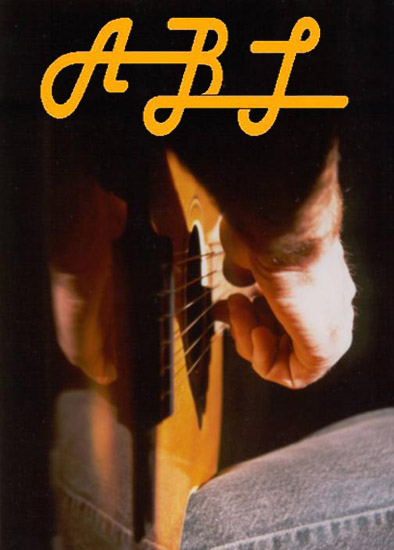| Cowriting
Part 1
Notes: A full discussion of intellectual property issues for songwriters
will be a subject for future articles. For now, I will refer to "ownership"
of a song as though it accrues solely to the songwriter(s), even though
that often is not technically true. Also note that when it comes to
songwriting, every "rule" you ever have heard or will hear,
including these, might be broken or might not apply in a given situation.
Cowriting is an interesting phenomenon. It involves two (or more) people,
frequently actual or virtual strangers, setting up a formal meeting
at which they engage in an intimate and passionate act of creation.
Hmm. Maybe that's why I enjoy it. ;-) As if that was not uncomfortable
enough a dynamic, at the same time these people are creating a piece
of intellectual property that has actual or potential commercial value.
Talk about pressure! The following are rules that some groups of songwriters
I have worked with have adopted to make the road a little less confusing.
Rule #1: "There are no rules"
Any agreement you have with a cowriter can replace or eliminate any
or all of the following rules. The "Nashville" rules of songwriting
(the basis for most of the following) have become widely accepted as
standard. Still, there are songwriting communities with different rules
and expectations. Although the following rules have applied successfully
to hundreds of cowrites in my experience, your mileage may vary. Clarify
your expectations in advance with cowriters and document any agreement
you have that differs from your understanding of standard practice.
Rule #2: "In for a word, in for a third"
In general, the "ownership" of a cowritten song is split equally
and proportionally among every contributor, without regard to the relative
magnitude of any cowriter's actual contribution. If two people cowrite
a song, they both put their names on it and share "ownership"
50-50. Similarly, if three people participate, they each get a third.
It doesn't matter if one of them feels that s/he actually contributed
more than the other. In fact, if one of them contributed as little as
a single word or a single note, or even an idea that gets changed in
the course of writing, that person gets half.
There is much more to be said about this subject and why this arrangement
can be such a good one. If you are interested, let me know and I will
expand on this topic in a future "Tips."
Rule #3: Lyric equals music
In a two-way collaboration in which one writer contributes only lyrics
and the other contributes only music, these two contributions are generally
considered to be equal.
Rule #4: "Mind your own business"
This doesn't mean don't be nosy. It means that you are responsible for
sorting out and managing your own business interest in a cowriting relationship.
It is up to you to document and keep track of the things you need to
keep track of. These responsibilities include:
- Get publishing, PRO membership and contact information from your
cowriter(s)
- Record the date, time and location of the session
- Make sure you leave the session with a usable version of the lyrics
written down
- Leave the session with either a worktape or another version of the
music
These are not just memory aids. Without information about your cowriter(s),
you cannot register the song with your PRO, represent the song to a publisher
or pitch the song to an artist who might potentially want to record the
song. In the unlikely event of a copyright dispute over the song, such
records can help to establish the earliest date and time of creation,
which is almost always the deciding factor in the courts. Ideally, in
the exceedingly unlikely event of a lawsuit, you should be able to show
the court a consistent pattern of notating such information.
Rule #5: The rule of unanimous rule
All major decisions about a song (business and creative) should be reached
by unanimous consent of the cowriters. If everyone is not happy, ultimately
no one is happy. In a three-way cowrite, you may agree that two votes
will carry the day. Usually, though, if you work at it, you will find
a solution that delights everyone. Try never to coerce someone into
putting their name on a project they are not proud of.
Rule #6: The escape clause
You can get out of any cowritten project by asking that your name be
taken off the song and abandoning any claim on the song. If you feel
like you want to take some of the project with you when you go, things
might get sticky, but you can always walk away cleanly if you want.
Rule #7: Never disenfranchise your cowriter(s)
Your cowriter's share of "ownership" is not yours to give
away without their permission. If you previously started a song with
one or more cowriters, do not subsequently bring additional writers
into the process or substantively change the work without the permission
of all previous cowriter(s). (Technically, you can "write someone
off a song," but that would take some explaining, perhaps at another
time.) Similarly, do not overlook a previous cowriter if you bring a
partial song or idea into a cowrite. These things happen sometimes and
inevitably lead to hard feelings at best and lawsuits at worst. I've
been party to some "accidental" three-way cowrites. It is
always awkward, even among good friends.
Entire books have been written about Cowriting. I have gone on for
far too long here already and have just barely scratched the surface.
The main thing is that with a little advance thought, clear expectations
and agreement about the basic rules of the road, cowriting can be fun,
inspiring, instructive and lucrative. Give it a try!
Next time, I'll wrap up this three-part cowriting go-around with some
dos and don'ts of cowriting and tips about how you can get started cowriting
and how you can make cowriting more productive for you.
Cowriting
Part 3 |


